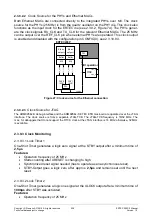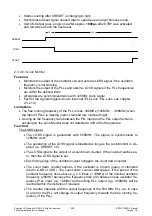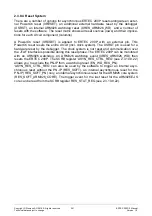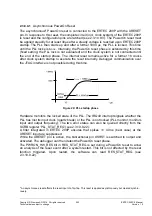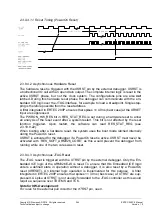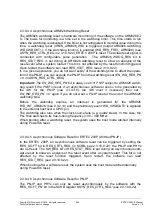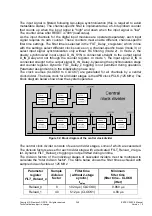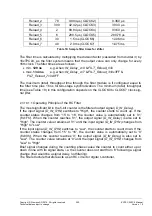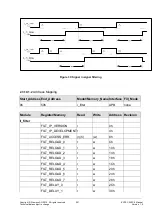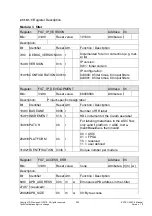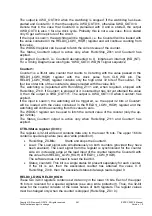
Copyright © Siemens AG 2016. All rights reserved
248
ERTEC 200P-2 Manual
Technical data subject to change
Version 1.0
2.3.10.1 I-Filter
Up to 80 input signals can be sent by the GPIO interface (GPIO15-0, GPIO95-32)
through an I-filter. Please see 3.2 for the corresponding I-filter input for each GPIO. The
pending input signals D_IN can be saved unfiltered and directly (mode 1: no synchroniza-
tion), unfiltered and synchronized (mode 2) or filtered (mode 3) in the modules below. In
all cases, the input signals are sent through the I-filter which operates on a channel-
specific basis and can be configured over the APB.
Figure 30:
Block diagram of the IO filter
The APB module "I-Filter" allows you to filter out brief signal spikes and interference.
Filtering is done using a synchronization unit (IN_Sync) and filter stage (RC_Filter) in the
module, which are available for each input (channel). If you do not want to filter an input
signal, either the synchronization stage of the I-filter is used (mode 2) or the input signal
itself is forwarded without processing by the I-filter (mode 1). The filter stage is supplied
by a central clock divider, whose configurable clock sources can also be selected on a
channel-specific basis. The block diagram below shows exactly how the I-filter operates,
using the example of one channel:
D
CLK
Q
D
CLK
Q
U/D
CLK
EN
5-bit counter
MUX
IN_Delay_x
FILT_OFF
D_IN_FILT
D_IN_Delay
D_IN_SYN
D_IN
PCLK
CLK_EN
D_IN_SYN
M
U
X
Channel-specific
structure
D_IN
Figure 31:
Block diagram of the filter structure of a channel





